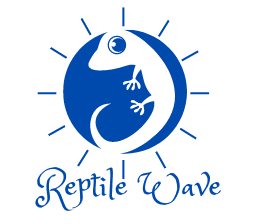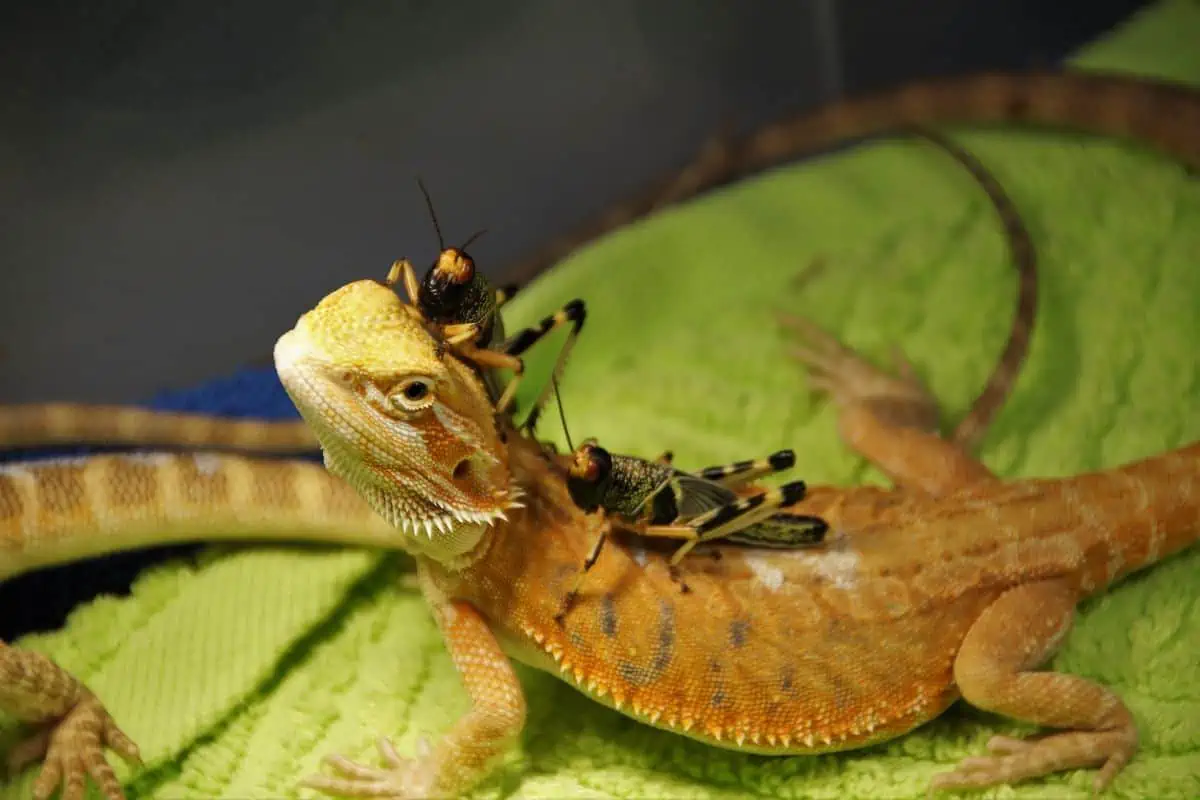You’re thinking about giving grasshoppers to the bearded dragon, but you’re not sure if it’s okay.
So, can A Bearded Dragon Eat Grasshoppers? Yes, bearded dragons can eat grasshoppers as part of their food. In the wild, they eat different bugs, and grasshoppers can be a healthy snack for them in captivity. Just make sure the grasshoppers are clean and don’t have any harmful chemicals on them.
Moreover, pick the right-sized grasshoppers for your bearded dragon. Make sure the bugs are smaller than the space between their eyes. Feed them bugs that are the right size, well-fed, and dusted with calcium and vitamins. Give your bearded dragon a mix of bugs, veggies, and fruits for a healthy diet.
How Many Grasshoppers Can My Bearded Dragon Eat?
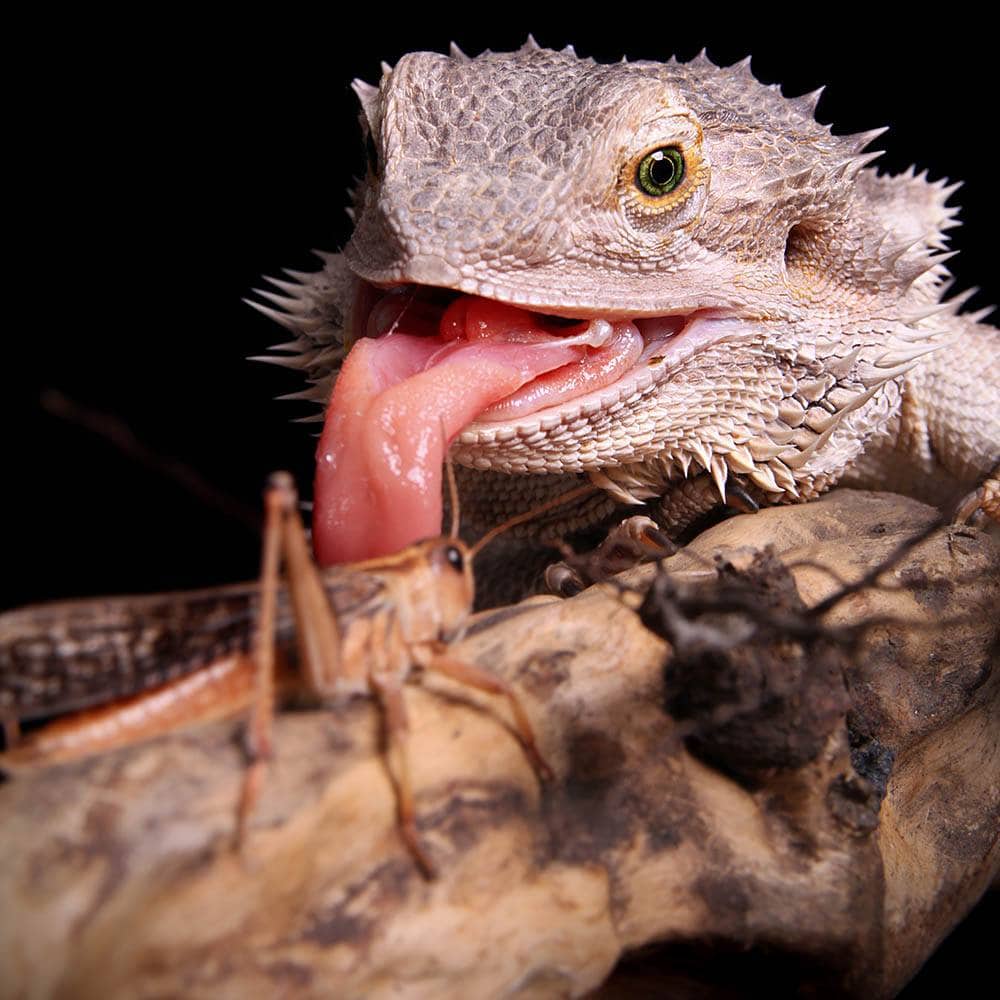
Bearded dragons’ grasshopper intake varies with age, size, health, and diet. Consider these factors for a balanced nutritional intake. Here is a general guideline.
| Age Group | Type of Dragon | Recommended Food | Quantity per Feeding |
| 0-3 months (Baby) | Bearded Dragon | Small-sized grasshoppers | 10-20 grasshoppers |
| 3-12 months (Juvenile) | Bearded Dragon | Slightly larger grasshoppers | 15-30 grasshoppers |
| 12 months and older (Adult) | Bearded Dragon | Larger grasshoppers | 20-50 grasshoppers |
However, frequency offers grasshoppers as part of a varied diet, ideally 2-3 times a week. Ensure that they are not the sole protein source and supplement their diet with a mix of other insects, vegetables, and fruits.
Can Bearded Dragons Eat Wild Grasshoppers?
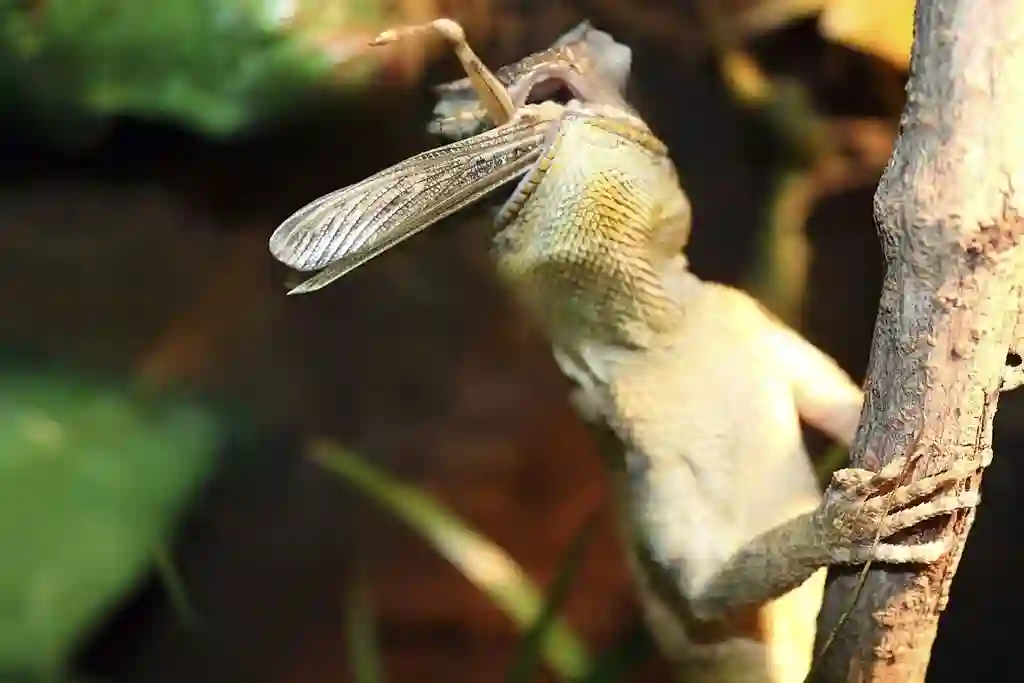
It’s not a good idea to give wild grasshoppers to your bearded dragon. Why? Well, first, these insects might have touched pesticides or harmful stuff that could make your dragon sick.
Also, wild grasshoppers can carry yucky things like germs or parasites that could give your dragon infections. The food wild grasshoppers eat in nature can change a lot. So, they might not always have the good nutrients your dragon needs.
Additionally, wild insects usually don’t get fed with extra healthy foods like the ones you buy for your dragon. Depending only on wild-caught insects might make your dragon’s meals a bit unbalanced.
To keep your dragon safe and healthy, it’s better to get insects from a pet store or a good breeder. They make sure the insects are safe and full of the right nutrients. Always ask a vet for help with what’s best for your dragon’s diet!
How to Feed Grasshoppers to Bearded Dragons?
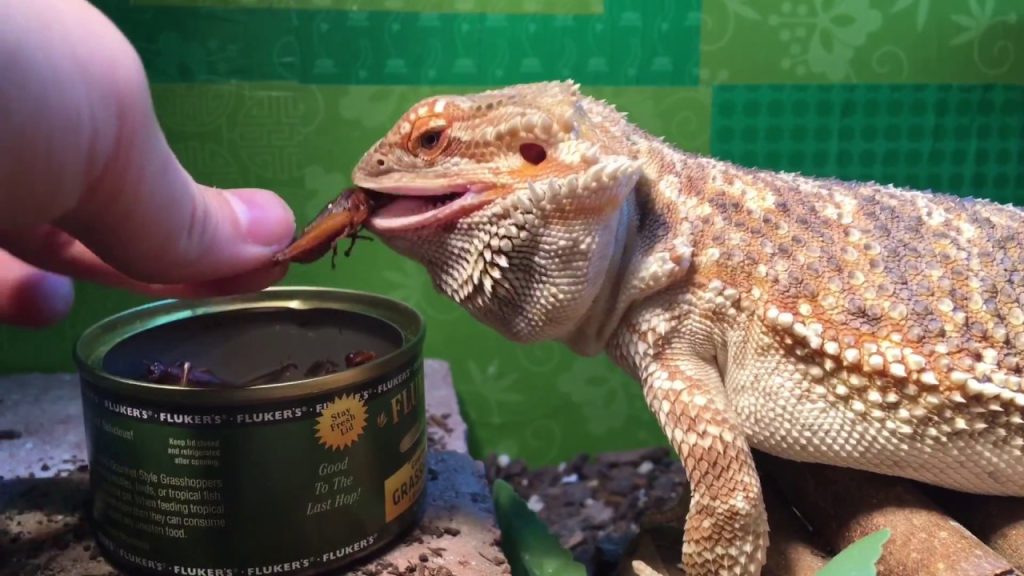
Feeding grasshoppers to your bearded dragon is easy! Just make sure the grasshoppers are healthy by giving them good food and adding calcium. Start slow, watch how your dragon reacts, and mix in other foods like veggies to keep them happy and healthy.
Preparing Grasshoppers for Consumption
To make grasshoppers healthy for your bearded dragon, feed them good food like leafy greens, carrots, or special diets. This makes them full of good stuff that helps your dragon stay strong.
Sprinkle a powder with calcium on the grasshoppers before giving them to your dragon. This helps keep their bones strong and healthy.
If the grasshoppers are too big, take off their hard outside parts so your dragon can eat them more easily. This helps them digest better.
Feeding Guidelines and Precautions
Pick the right-sized grasshoppers for your bearded dragon. Little ones are good for younger dragons, and bigger ones for grown-ups.
Start giving grasshoppers to your dragon slowly, like 2-3 times a week. Mix them with other bugs, veggies, and fruits to keep their meals diverse.
Watch your dragon eat to make sure it’s easy for them. Take away any bugs they don’t eat to keep their home clean.
Monitoring Your Bearded Dragon’s Response
Keep an eye on your dragon while they eat. If they are active and alert, it’s good. But if they seem tired or upset, there might be a problem.
Look out for any signs of allergies like swelling or itching. If you see these, talk to a vet right away.
Check if your dragon poops regularly and normally. If there are problems like being too stuck or too runny, change their food amount and ask a vet if it keeps happening.
Weigh your dragon sometimes to make sure they are the right weight. If they suddenly get too skinny or too chubby, it could be a sign of a problem with their food or health.
What Are the Common Grasshopper Varieties and Their Vital Nutritional Values?
Check out common grasshoppers for bearded dragons. Remember, nutritional values can vary due to diet and environment.
| Grasshopper Variety | Protein (g/100g) | Fats (g/100g) | Calcium (mg/100g) | Phosphorus (mg/100g) |
| Common Field Grasshopper | 20-25 | 6-9 | 30-50 | 160-200 |
| Migratory Locust | 20-30 | 10-15 | 20-40 | 100-150 |
| Red-legged Grasshopper | 20-25 | 8-12 | 40-60 | 120-160 |
| Differential Grasshopper | 20-30 | 7-10 | 30-50 | 150-180 |
| Brown-spotted Grasshopper | 18-24 | 6-9 | 35-55 | 130-170 |
FAQ
Yes, freeze-dried grasshoppers can be suitable for bearded dragons.
Yes, bearded dragons can eat crickets.
No, it’s not recommended to leave crickets in the enclosure continuously.
Bearded dragons can go without eating crickets for a day or two without issues. However, consistent refusal to eat may indicate health concerns, and a vet should be consulted.
Final words
All things considered, yes, bearded dragons can eat grasshoppers! These crunchy insects can be a yummy and nutritious part of their diet. Just remember to offer them in the right size. Moreover, it’s a good idea to mix in other foods like veggies to keep your dragon happy and healthy.
Always watch how your dragon reacts. However, if you’re ever unsure, check with a vet for the best advice on feeding your scaly friend. Happy dragon dining!
